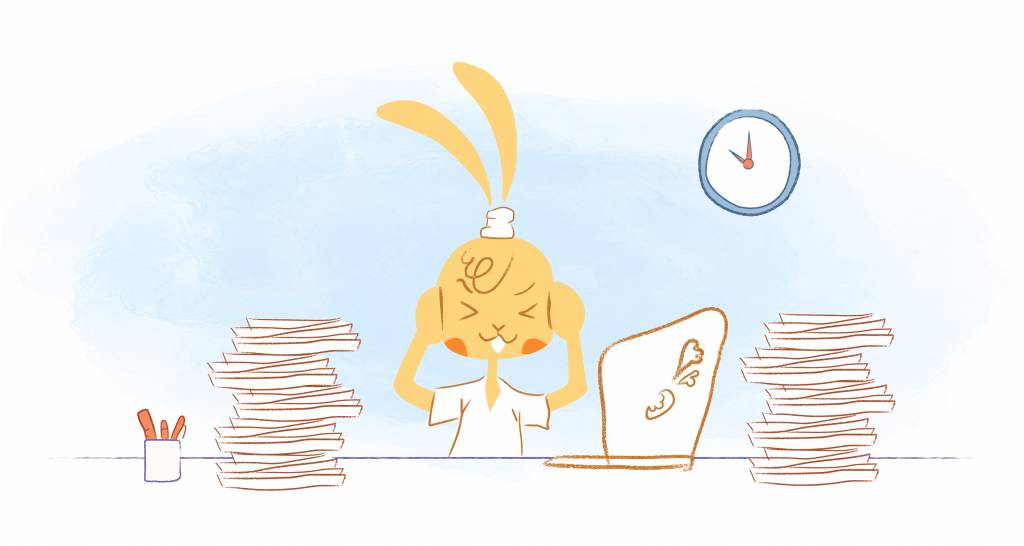

It is impossible to overstate the importance of routines in our lives. Having routines provides stability, predictability, and control. As a result, we can be more efficient, more productive, and more focused. Furthermore, they can improve our health, reduce stress, and boost our overall well-being.
Our goal in this article is to show you how to build positive routines in your life and how they will benefit you. Additionally, we will share some tips for making your routines efficient and sustainable.
The Benefits of Positive Routines
There are many ways in which positive routines can benefit our lives. The following are among the most important benefits:
Reduces stress and anxiety.
Having a routine can reduce feelings of uncertainty and anxiety because we know what to expect. This is especially helpful whenever there is stress or a change in your life.
Northwestern researchers found that routines reduce stress. “Creating predictable scenarios through habits allows your mind to adjust, understand what to expect, and alleviate anxiety over the unknown,” writes Brad Brenner, Ph.D.
Unless you implement healthy stress management techniques, you can increase your risk for heart disease and negatively impact your overall health, the Northwestern researchers claim.
Improves your mood.
Positive routines can also improve your mood. Your brain releases endorphins when you do things that make you feel good, like exercising, spending time with loved ones, or being grateful.
The mental health of individuals can be improved dramatically through sustainable daily routines, according to researchers. It is possible to reduce or even eliminate the symptoms of several mood disorders with the help of the right routines.
In an article, Dr. Dan Brennan, MD, quoted a study showing that people who were dysregulated in their circadian rhythms had a higher rate of depression and mood disorders, a greater chance of loneliness, and lower happiness levels.
There has also been evidence that routines can benefit people in recovery from addictions, people who suffer from bipolar disorder, and those who suffer from other mental illnesses.
You’ll sleep better.
A regular sleep-wake cycle is regulated by going to bed and waking up simultaneously every day. As a result, you may be able to sleep better and have more energy during the day.
Productivity will increase.
Using your time effectively is easier when you follow a daily routine, say Northwestern researchers. “Often, no routine means you simply run out of time, leaving things undone and not making the most of your time.”
When you’re not feeling particularly inspired, rituals help you stay productive. Your mental energy and willpower will be sapped by constantly going back and forth about when to begin, what to do, and how long to work. A plan will save you time and energy if you follow it every day.
A better sense of focus.
By providing a sense of purpose and reducing distractions, routines help us to focus. It is easier to avoid temptation when we follow a routine because we know what we need to do and what we need to focus on.
Enhance your self-esteem.
Routines can give us a sense of control over our lives and make us feel more confident about ourselves. In turn, this can boost our self-esteem.
Overall health can be improved.
Sleep is also improved by daily routines. Good night’s sleep benefits include reduced stress, better health, increased productivity, and fewer sick days. “Your sleep schedule and bedtime habits affect your mental sharpness, performance, emotional well-being, and energy level,” Researchers at Northwestern write.
With a daily routine, you don’t have to play catch-up with yesterday’s tasks. “If you’re always behind on what should have been done the day before, you’re likely also staying awake worrying about what didn’t.”
An increase in well-being.
Routines can improve our sense of purpose, satisfaction, and happiness, helping us to feel better in general. We feel more in control and happier when we have a routine.
How to Build Positive Routines (And Stick to It)
If you follow these steps, it is possible to establish positive routines in your life. There are a few ways to keep your positive routines going after you have implemented them:
Find routines that fulfill you.
You’ll probably hate it when you commit to a routine just so you can brag about it or post about it on social media. It may be less satisfying to create a daily routine primarily focused on pleasing or impressing others.
Ultimately, self-care is about taking care of oneself. Keep in mind that no matter what routine you choose or how they fit into your world, you should be the one who receives fulfillment from them.
Take baby steps.
Make small changes at a time rather than overhauling everything at once. Try one or two small changes to your routine and see how it goes. You can start adding more changes once you have those down.
Keep it real.
Be careful not to overdo it. Setting unrealistic goals will make you give up more often. Set small, attainable goals and gradually increase them.
Build habits together.
There is more to habits than just the activities we perform. Habits are our thoughts and beliefs as well. As a result, our actions, behaviors, and beliefs are all influenced by them.
There is no such thing as a standalone habit; they are all interconnected. As such, some habits are more interconnected than others. For example, waking up early and sleeping early are linked, but sleeping early and reading a book a day may not be so close.
Plan it out.
It is best to start small and take one week at a time. It is important to remember that you can build on simple accomplishments in this way. Almost like an appointment; schedule it all out on a calendar.
Focus on consistently.
In order to build positive routines, consistency is key. The chances of something becoming a habit are slim if you do it once or twice. Eventually, it will become automatic if you do it consistently.
Have fun with it.
It is less likely that you will stick with your routines if you do not enjoy them. Consider making your routine enjoyable by listening to your favorite music while exercising or reading a book before you sleep.
Always be prepared.
It will be easier to get started without delay if you have all the pieces before you start a new routine. As an example, if you want to clean the house every Saturday morning, make sure you have all the cleaning materials you need and that your vacuum cleaner works properly.
Review your routines regularly.
It may be necessary to change your routine as your life changes. Routines should be reviewed regularly and adjusted as necessary.
Don’t be rigid.
Not everything goes as planned. Do not beat yourself up if you encounter a setback. Getting back on track is as easy as picking yourself up and going again.
Experiment freely.
There is no right way to do it when building positive routines. Find out what works for you by experimenting with different things.
Find a support system.
You can make a big difference on your journey by having people support you. Keep yourself motivated and accountable by finding friends, family, or community groups.
Reward yourself.
You deserve a reward when you stick to your routines. Staying motivated makes you more likely to follow your routine over time.
Ask for help if you need it.
You can find a variety of resources to help you build positive routines if you are having difficulty doing so. Develop an individualized plan with the help of a therapist, coach, or other professional.
Conclusion
Building positive routines can increase your focus, productivity, and overall well-being. You can begin making positive routines today by following the tips in this article.
Building positive routines, however, requires time and effort. Ultimately, it is worth it.
FAQs
What are the benefits of having a positive routine?
Positive routines have many benefits. A few examples are as follows:
- Increased productivity. A routine helps you stay on top of what needs to be done and when. By doing this, you can be more productive and stay on track.
- Reduced stress. It is easier to reduce stress if you have a routine to help you keep track of your daily activities. Since you already know what needs to be done and when you don’t have to worry about it.
- Improved mood. The more you stick to a positive routine, the more likely you are to feel good about yourself. Achieving your goals, looking after yourself, and making progress are all things you’re doing well. As a result, you may feel more positive in general.
- Increased happiness. You can live a happier life if you follow a positive routine. A happy, comfortable, and fulfilled life comes from taking care of yourself, setting goals, and achieving success.
How do I create a positive routine?
A positive routine can be created by following these tips:
- Start small. Make small changes at a time instead of trying to change everything at once. Make a positive change to one or two of your daily habits.
- Be specific. How would you like your routine to be structured? Establish a regular schedule of activities that you would like to engage in.
- Set realistic goals. Setting small, realistic goals will help you succeed.
- Be consistent. To stick to a routine, you must be consistent. No matter what day of the week, stick to your routine every day.
- You need to be flexible. You shouldn’t be afraid to make changes to your routine if necessary. Be open to trying something new if something isn’t working for you.
- Make it fun. When you hate your routine, you are less likely to stick with it. During your routine, listen to music or read while you do your work to make it more enjoyable.
What are some examples of positive routines?
A few examples of positive routines are as follows:
- Wake up early and exercise. You can set the tone for the rest of your day by engaging in this morning routine.
- Eat a healthy breakfast. Your day will be more productive if you eat a healthy breakfast.
- Meditate or do some relaxation exercises: Practicing these exercises can help you reduce stress and improve your focus.
- Set goals for the day and make a plan to achieve them. Keep track of what you need to do to be more productive.
- Take some time for yourself each day to do something you enjoy. Whatever makes you happy, whether it’s reading, listening to music, spending time with family, or doing something else you love, it’s something you should do.
How do I stick to my positive routine?
To keep your positive routine going, here are some tips:
- Commit yourself. Regardless of what happens, decide to stay with your routine.
- Find a support system. You can ask family and friends for support by telling them about your routine.
- Set up reminders. Keeping track of your routine can be done with a calendar, alarm clock, or app.
- Reward yourself. Give yourself a reward when you maintain your routine.
- Don’t give up. If you make a mistake, don’t punish yourself. The next day, get back up and try again.
Image Credit: Vlada Karpovich; Pexels; Thank you!










John Rampton
John’s goal in life is to make people’s lives much more productive. Upping productivity allows us to spend more time doing the things we enjoy most. John was recently recognized by Entrepreneur Magazine as being one of the top marketers in the World. John is co-founder and CEO of Calendar.